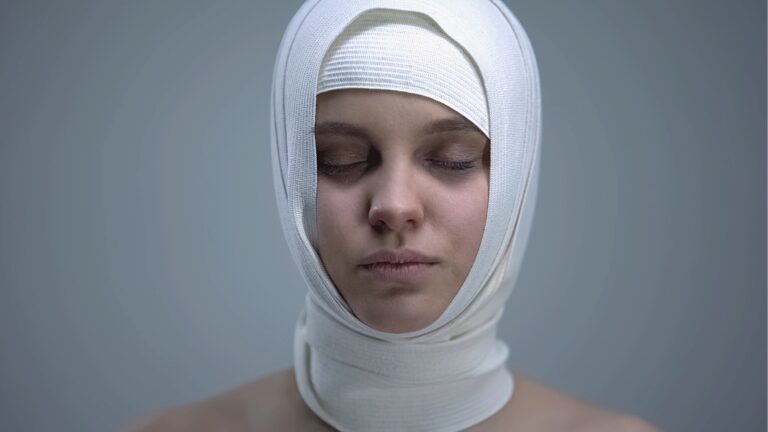Traumatic Brain Injury

At Holistique, many of our patients with chronic illnesses have experienced at least one head injury/concussion in their lives. Some of our patients come specifically for unresolved concussion symptoms after experiencing a traumatic brain injury. Proper immediate evaluation and treatment for a head injury is essential to preventing persistent debilitating symptoms. The long-term effects of an untreated brain injury can have far-reaching negative impacts on one’s future health.
Traumatic Brain Injury (TBI) is one of the leading causes of disability
Traumatic Brain Injury (TBI) is one of the leading causes of disability in the US. The socio-economic impact is $76.5 billion in direct and indirect costs. The highest rates of TBI according to age occur in the greater than 75-year-old age group, affecting more men than women. The next two highest rates occur in 0–4-year-olds and 15–24-year-olds. The most common mechanism of action adjusted for age, are falls, being struck by an object, and motor vehicle accidents.
Risks for Athletes
Brain injuries cause more deaths than any other sports injury. In any given season, 10% of all college players and 20% of all high school players sustain brain injuries. 87% of professional boxers have sustained a brain injury. 5% of soccer players sustain brain injuries because of their sport. The head is involved in more baseball injuries than any other body part. Almost half of the injuries involve a child’s head, face, mouth, or eyes.
An athlete who sustains a concussion is 4-6 times more likely to sustain a second concussion. Effects of concussions are cumulative in athletes who return to play prior to complete recovery. Up to 86% of athletes that suffer a concussion will experience Post-Traumatic Migraine/Syndrome or some other type of headache pain. presence and severity of headache symptoms may be an incredibly significant indicator of the severity of the head injury and help guide return to play decisions.
TBI’s need Prompt Evaluation
All traumatic brain injuries should be evaluated immediately by a medical professional team appropriate for the level of injury. There are multiple assessment tools such as the Military Acute Concussion Evaluation (MACE-2) and Standardized Concussion Assessment Tool (SCAT) that can be used initially and to help track progression or improvement of symptoms. There are now apps such as EQ Brain Performance (in the Apple and Android app stores) which contains seven neurological tests, all clinically tested and helpful in the assessment of neurological impairments/conditions such as anxiety, lack of sleep, concussion, and more.
Dealing With Lingering Effects After You’ve Been “Medically Cleared”
One of the most challenging situations for patients is when they have been cleared by their health practitioners, but they continue to have such symptoms as brain fog, fatigue, memory issues, and headaches. For many patients and practitioners, it is not clear why this continues or what can be done. At Holistique, our providers help patients navigate poorly understood chronic illnesses where all the “layers” causing these symptoms must be identified.
We feel a significant percentage of patients with chronic symptoms after a TBI may be due to a reactivation of a chronic infection. TBIs can open the blood-brain barrier which allows for the activated viruses and/or bacterial infections to migrate into the brain. Tick-borne illnesses which may have been subclinical up to this point may become obvious. Taking a full medical history and ordering proper testing for infectious causes is essential. We have seen many patients who have had long-standing symptoms from their TBI improve drastically when we have addressed these infections.
Ideally, we like to see patients within 3 weeks of their brain injury. Once a full medical history, physical exam, and appropriate lab workup have been done a comprehensive protocol will be created. Our protocols consist of appropriate nutritional supplements, neural therapy, hyperbaric oxygen therapy, intravenous therapies, acupuncture, and cranial sacral therapy all while being monitored closely by your physician.
Many nutritional supplements may play a role in addressing the immediate neuroinflammation, oxidative stress, hypoxia, and excitotoxicity that occurs in TBI. Common oral and intravenous therapies we may prescribe include ascorbic acid (Vitamin C), B vitamins, Glutathione, Phospholipids, Taurine, and lipoic acid (PolyMVA). Other oral supplements include fish oils and curcumin. Neurosteroids such as Pregnenolone and DHEA may provide a protective effect for the brain. Low-dose naltrexone, cannabinoids, and glycine have been shown to help address inflammation. Multiple herbal remedies such as Baikal skullcap, Japanese knotweed, and Artemisinin are immunomodulating while having antiviral and antibacterial properties.
The Autonomic Nervous System is the “automatic” part of our nervous system that involuntarily regulates many of our organ systems. When the body has difficulty regulating itself such as from a TBI, multiple symptoms can arise. The goal in addressing TBIs is to help the body get back to its original balance. One important approach to this is Neural therapy which is a comprehensive healing therapy introduced by the Huneke brothers in 1928. Like acupuncture, it is based on the idea that embryologically our skin and nervous system develop from the same cell line, thereby creating a viscero-cutaneous reflex. Therapeutic anesthetics, nutrients, and homeopathic remedies can be injected into acupuncture points on the skin as well as scars to stimulate blood flow and healing factors to the corresponding organ systems. Many patients receiving neural therapy can notice a marked improvement in their symptoms.
Hyperbaric oxygen therapy (HBOT) is a pivotal therapy we use to heal brain injuries. Ideally, we like to have our patients do 3 60-90 minute HBOT sessions within 72 hours of an injury. The HOBBIT Trial for severe TBI showed that 2 sessions per day, 5 days per week with a 2-day rest showed a marked reduction in mortality and morbidity. It stimulates the production of stem cells, mitochondria and prevents reperfusion injury.
Acupuncture is particularly helpful in addressing the emotional side effects of TBI such as anxiety, depression, and insomnia. Sessions 1-2 times a week for 6 weeks helps to reduce inflammation induced by TBI.
It is essential to address the structural sequelae of TBI. Cranial osteopathy, similar to cranial sacral therapy (CST) TBI patients found a decrease in headaches, vertigo, muscle tension, and an improvement in their general well-being. Cranial sacral therapy (CST) addresses the dysfunction directly, providing a mechanism where correction of the strain patterns is possible, thereby facilitating a reduction in symptoms. It is helpful in supporting not only the physical release of restrictions but allows gentle processing of the emotional trauma associated with their condition.
As you can see, we use multiple effective modalities to address the sequelae of traumatic brain injuries. While all of these options may feel overwhelming, particularly when you are suffering from symptoms, we can help you assess what is best for you and support you through your recovery.

Dr. Kara Nakisbendi is a board-certified Obstetrician-Gynecologist and Certified Functional Medicine Provider. She received her Bachelor of Science in Biochemistry from Temple University and her Medical Degree from Temple University School of Medicine where she was inducted into the Alpha Omega Alpha Medical Honor Society.
